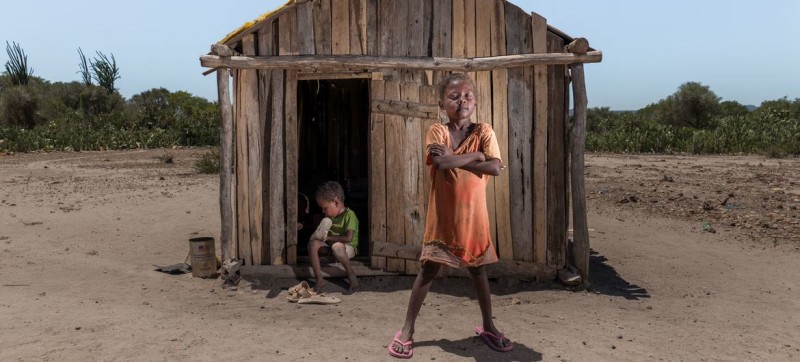
© UNICEF/Safidy Andriananten Madagascar is one of 46 Least Developed Countries as designated by the United Nations.
The Doha Programme of Action, as it’s formally known, has been designed as a roadmap up to 2031, to foster strengthened commitments between the least developed countries and their development partners.
“The world is reeling under the cascading impacts of complex, interlocking challenges and structural limitations and constrained fiscal capabilities make least developed countries the ones first and often most severely impacted,” said Csaba Kőrösi at the opening of the General Assembly and Economic and Social Council (ECOSOC) high-level event on the plan being an accelerator of implementing the 2030 Agenda for Sustainable Development.
Tweet URL
Slowing global economic growth projections are unfolding against a bleak backdrop of skyrocketing inflation, fragmented global supply chains and the triple threat of the food, fuel, and finance crises, he said.
The least developed countries (LDCs) suffering the protracted effects of these interconnected crises are often those least responsible for the global trends lashing out on them, including climate change.
Doha plan ‘opens new window’
The world’s 46 LDCs – a category reviewed every three years by the Committee for Development – are low-income nations confronting severe structural impediments to sustainable development. They are highly vulnerable to economic and environmental shocks and have low levels of human assets.
With the “domino effect” of their limitations threatening to reverse decades of development gains in the face of current crises, he said the Doha Programme for Action, “opens a new window”.
Innovative deliverables
The action plan which will be active from 2022 to 2031 “manifests a new generation of renewed and strengthened commitments” among their development partners, including the private sector, civil society, and governments at all levels, he said.
Some of the action plan’s innovative features include establishing an online university, building platforms to support online university-level science, technology, and engineering, and creating an investment support centre.
The goal is providing a pathway to overcome the impacts of ongoing global crises, build sustainable and inclusive recovery from the pandemic, and to build resilience against future shocks, Mr. Kőrösi said.
“In other words, to help us all to get back on track with the 2030 Agenda,” he said. “This is the time to show solidarity with the most vulnerable countries by fulfilling commitments instead of backtracking on them.”
The 46 countries need to do their part to expand their social safety nets and improve the domestic environment through good governance and enhancing efficiency, and development partners also need to deliver on their pledges, he said.
UN conference in Doha
Echoing this sentiment, the theme “from potential to prosperity” was adopted for the second segment of the fifth UN Conference on Least Developed Countries, to be held in Doha from 5 to 9 March.
World leaders, civil society and private sector partners and young people will gather to forge plans to implement the Programme of Action, which Member States had adopted at the first segment, held on 17 March last year at UN Headquarters. A declaration on their efforts and the challenges ahead is expected to be adopted at the Doha conference.
‘We have the tools’
The conference will be a “momentous occasion to renew the global commitment to supporting the poorest and most exposed members of our human family”, the General Assembly President said. “Through science, technology, and innovation, we have the tools to build sustainable recoveries.”
Encouraging collective efforts to ensure the plan of action is implemented on time, he said such initiatives “will give us all the chance to catch up on reaching our 2030 goals.”
To mark the start of the Doha conference, the UN Postal Administration plans to issue, on 5 March, a set of three postage stamps.

